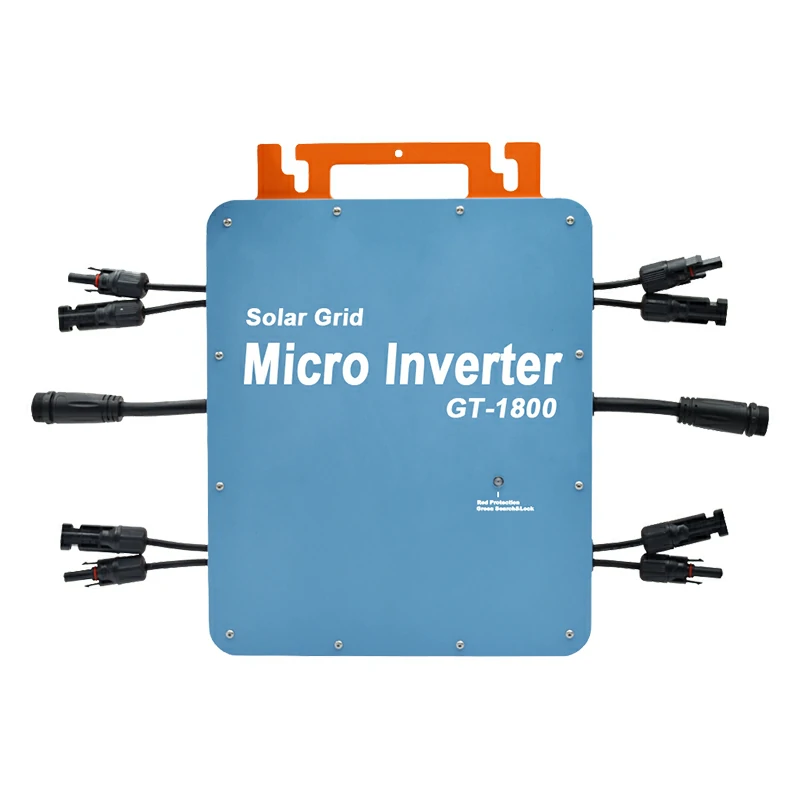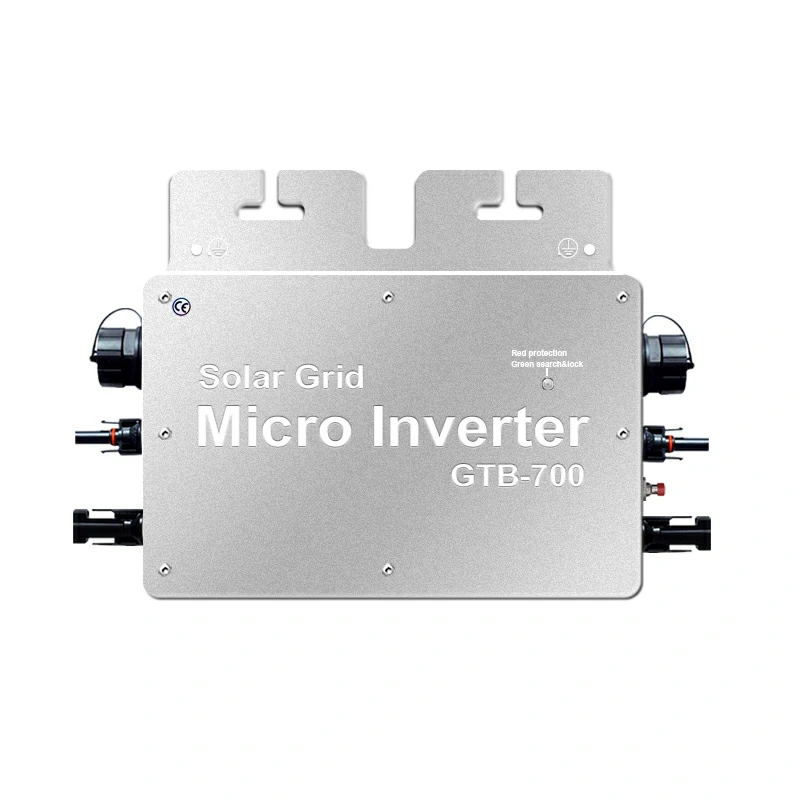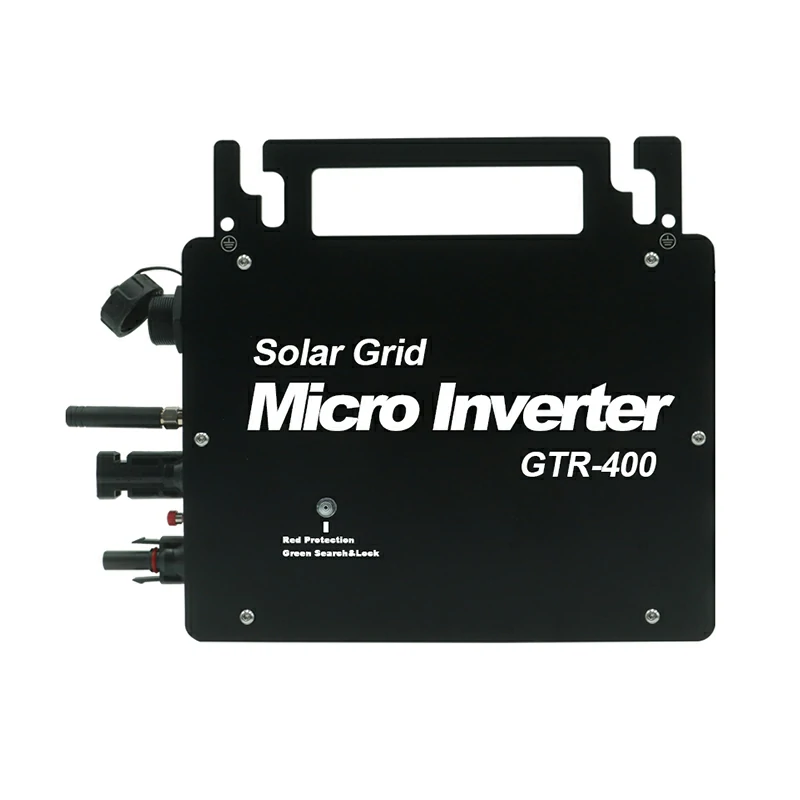Introduction
In the rapidly evolving landscape of renewable energy, solar power has emerged as a frontrunner in the quest for sustainable electricity generation. As more homeowners and businesses turn to solar energy, the importance of reliable and efficient solar energy systems has never been greater. At the heart of these systems lies a crucial component: the inverter. While traditional string inverters have been the norm, the advent of Micro Inverters has revolutionized the industry, offering enhanced resilience and fault tolerance to distributed solar energy systems.
This article delves into the world of Micro Inverters, exploring how these innovative devices contribute to the overall resilience and fault tolerance of solar energy systems. Whether you’re a potential buyer considering a solar installation or looking to upgrade your existing setup, understanding the benefits of grid-connected micro-inverters is essential in making an informed decision.

1. Understanding Micro Inverters
What are Micro Inverters?
Micro Inverters are small, sophisticated devices that are attached to each individual solar panel in a photovoltaic (PV) system. Unlike traditional string inverters or central inverters that handle the power output of multiple panels, a Micro Inverter is dedicated to a single panel. This one-to-one ratio is the key to their superior performance and reliability.
Functionality of Micro Inverters
The primary function of any solar inverter is to convert the direct current (DC) electricity generated by solar panels into alternating current (AC) electricity that can be used in homes or fed back into the power grid. Grid-connected micro-inverters perform this conversion at the panel level, offering several advantages over traditional inverter systems:
- Individualized power optimization: Each panel operates independently, maximizing energy production.
- Real-time monitoring: Performance data is available for each panel, enabling precise system analysis.
- Enhanced safety: Low-voltage DC is converted to AC at the panel, reducing overall system voltage.
By understanding these fundamental aspects of Micro Inverters, we can better appreciate their role in enhancing the resilience and fault tolerance of solar energy systems.
2. Resilience in Solar Energy Systems
Defining Resilience in Solar Context
Resilience in solar energy systems refers to the ability of the system to maintain functionality and recover quickly from disruptions or challenges. This can include environmental factors, equipment failures, or grid instabilities. A resilient solar energy system ensures consistent power production and distribution, even under less-than-ideal conditions.
Importance of Resilience
For users of solar energy systems, whether residential or commercial, resilience is crucial for several reasons:
- Consistent Energy Production: A resilient system maintains energy output despite varying conditions, ensuring a stable power supply.
- Long-term Reliability: Resilient systems tend to have longer operational lifespans, providing better return on investment.
- Grid Stability: In grid-connected systems, resilience contributes to overall grid stability, benefiting both the user and the broader community.
- Energy Security: Especially important during extreme weather events or grid outages, resilient systems offer a degree of energy independence.
3. Fault Tolerance in Solar Energy Systems
Understanding Fault Tolerance
Fault tolerance is a critical aspect of system resilience. In the context of solar energy systems, fault tolerance refers to the ability of the system to continue functioning, albeit at a reduced capacity, when one or more components fail. This is where grid-connected micro-inverters truly shine.
Comparison with Traditional String Inverters
To appreciate the fault tolerance of Micro Inverters, it’s helpful to compare them with traditional string inverters:
- String Inverters:Multiple panels are connected in series to a single inverter.
- Grid-Connected Micro-Inverters:Each panel has its own inverter.
This fundamental difference in architecture is key to understanding why Micro Inverters contribute significantly to the fault tolerance of solar energy systems.
4. Contributions of Micro Inverters to Resilience
Panel-Level Optimization
One of the standout features of Micro Inverters is their ability to optimize the performance of each solar panel independently. This means that shading, dirt, or malfunctions affecting one panel do not drag down the performance of the entire system. Each Micro Inverter ensures that its associated panel operates at its maximum potential, regardless of the conditions affecting other panels.
Impact on Overall System Performance
By optimizing each panel individually, Micro Inverters enhance the overall performance and resilience of the solar energy system. This panel-level optimization leads to:
- Higher Energy Yield: Even in partially shaded or dirty conditions, the system can still produce a significant amount of energy.
- Consistent Output: The system is less susceptible to fluctuations caused by individual panel issues.
- Improved ROI: Higher and more consistent energy production translates to better returns on investment over the system’s lifespan.
5. Contributions of Micro Inverters to Fault Tolerance
Isolation of Faults
Micro Inverters excel in isolating faults to individual panels, which prevents system-wide failures. If a single panel or Micro Inverter encounters a problem, the rest of the system continues to function normally. This isolation is a key factor in enhancing the fault tolerance of solar energy systems.
Ease of Maintenance and Repair
The modular nature of Micro Inverters simplifies maintenance and repair processes. Technicians can easily identify and address issues at the panel level without needing to shut down the entire system. This reduces downtime and ensures that the system remains operational while repairs are conducted.
Real-World Benefits
- Reduced Downtime: Quick identification and isolation of faults mean that the system spends less time offline.
- Lower Maintenance Costs: Targeted repairs are more cost-effective than addressing issues in a centralized system.
- Enhanced Safety: Working with lower voltages at the panel level reduces the risk of electrical hazards during maintenance.
6. Case Studies and Real-World Examples
Residential Installations
In residential settings, Micro Inverters have proven to be game-changers. Homeowners benefit from the enhanced resilience and fault tolerance, ensuring that their investment in solar energy yields maximum returns. For example, a homeowner with a grid-connected micro-inverter system can continue to generate power even if one panel is shaded by a tree or covered in debris.
Commercial Installations
Commercial solar installations often face more complex challenges due to their larger scale. Micro Inverters provide a robust solution by ensuring that issues with individual panels do not compromise the entire system. Businesses can rely on consistent energy production, which is crucial for operations that depend on a stable power supply. Please let me know if you’d like me to continue with the next sections.
7. Key Considerations for Buyers
When considering the purchase of a solar energy system with Micro Inverters, potential buyers should weigh several factors:
Cost vs. Benefit Analysis
While grid-connected micro-inverters typically have a higher upfront cost compared to traditional string inverters, they offer significant long-term benefits:
- Increased Energy Production: The panel-level optimization can result in 5-25% more energy production over the system’s lifetime.
- Longer Lifespan: Micro Inverters often come with 25-year warranties, compared to 10-15 years for string inverters.
- Reduced Maintenance Costs: The ease of identifying and replacing faulty components can lead to lower long-term maintenance expenses.
Compatibility and Scalability
Micro Inverters offer excellent compatibility and scalability options:
- Panel Compatibility: They work with a wide range of solar panel types and sizes.
- Easy Expansion: Additional panels with Micro Inverters can be easily added to existing systems without reconfiguring the entire setup.
- Future-Proofing: As technology advances, individual Micro Inverters can be upgraded without overhauling the whole system.
Warranty and Support
When selecting a Micro Inverter system, consider:
- Warranty Length: Look for manufacturers offering extended warranties, ideally matching the 25-year lifespan of most solar panels.
- Performance Guarantees: Some manufacturers provide guarantees on energy production levels.
- Customer Support: Evaluate the quality of technical support and the availability of local installers familiar with the technology.
8. Technological Advancements and Future Trends
Latest Innovations
The field of Micro Inverter technology is rapidly evolving, with recent advancements including:
- Higher Power Handling: Newer models can handle higher wattage panels, making them suitable for the latest high-output solar modules.
- Improved Efficiency: Modern Micro Inverters boast conversion efficiencies of up to 97%, rivaling the best string inverters.
- Enhanced Communication: Integration with smart home systems and improved data analytics capabilities for system monitoring.
Future Outlook
Looking ahead, we can expect several trends in Micro Inverter technology:
- Integration with Energy Storage: Seamless compatibility with battery systems for enhanced energy independence.
- AI and Machine Learning: Advanced algorithms for predictive maintenance and optimized energy management.
- Grid Services: Micro Inverters may play a larger role in grid stabilization and demand response programs.
As the technology continues to advance, grid-connected micro-inverters are poised to become an even more integral part of resilient and fault-tolerant solar energy systems.
Conclusion
Micro Inverters have emerged as a transformative technology in the solar energy industry, offering unparalleled benefits in terms of resilience and fault tolerance. By optimizing performance at the individual panel level, isolating faults, and simplifying maintenance, Micro Inverters ensure that solar energy systems remain robust and reliable even under challenging conditions. Whether for residential or commercial installations, the advantages of grid-connected micro-inverters make them a compelling choice for anyone looking to invest in solar power.




